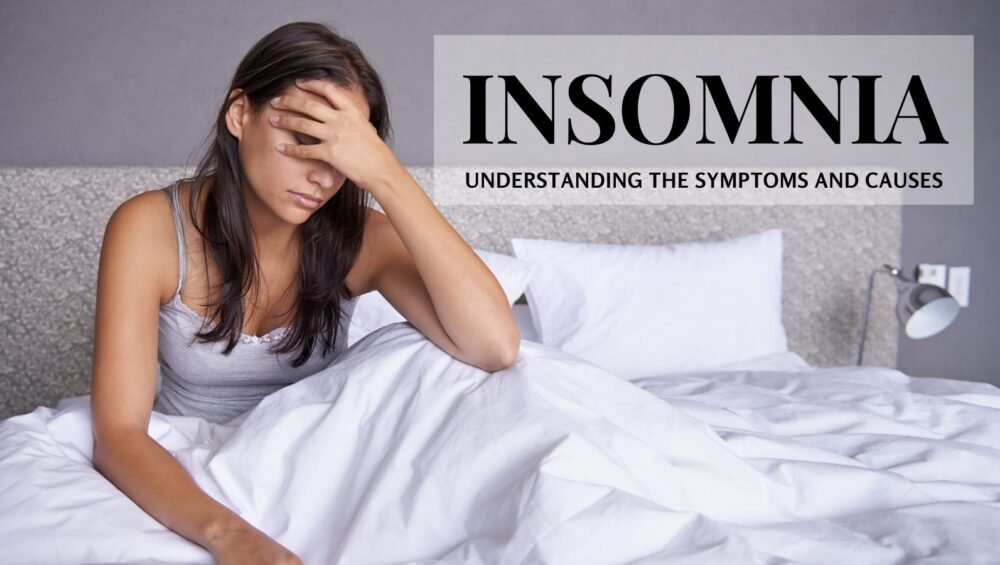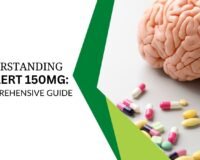To maintain good health and wellbeing, one must get enough sleep. It helps our body to rejuvenate and prepare for the next day. However, many people struggle to get enough sleep, and one common condition that affects sleep is insomnia. A sleep disorder called insomnia is characterised by problems getting to sleep, staying asleep, or both. In this blog, we will explore the symptoms, causes, and treatment options for insomnia.
Symptoms of Insomnia
Individuals with insomnia may experience different symptoms. Some common symptoms of insomnia include:
- Difficulty falling asleep
- Waking up frequently during the night
- Difficulty concentrating and paying attention
- Irritability and mood swings
- Headaches, muscle aches, and stomach problems
- Anxiety and depression
It is imperative that you speak with a healthcare professional if you encounter any of these symptoms. They can help you diagnose and treat the underlying cause of your insomnia.
Causes of Insomnia
- Insomnia can have several causes, including medical conditions, lifestyle factors, and psychological factors. Some common causes of insomnia include:
- Medical conditions: Chronic pain, asthma, allergies, gastrointestinal problems, and neurological conditions
- Lifestyle factors: Poor sleep habits, such as irregular sleep schedules, caffeine consumption, and alcohol consumption, can disrupt the sleep-wake cycle
- Psychological factors: Anxiety, depression, stress, and trauma can all interfere with sleep.
- Environmental elements: temperature, light, and noise can all have an impact on how well you sleep.
Treatment for Insomnia
The treatment for insomnia will depend on the underlying cause of the condition. Insomnia is frequently treated using the following methods:
Lifestyle changes: Maintaining a regular sleep schedule, avoiding caffeine and alcohol, and creating a comfortable sleep environment can help improve sleep quality.
Cognitive-behavioural therapy (CBT): CBT is a form of talk therapy that helps people identify and change negative thoughts and behaviours.
Medications: Prescription medications, such as sedatives and antidepressants, can help improve sleep quality. However, these medications should be used with caution and under the guidance of a healthcare provider.
Alternative therapies: Yoga, meditation, and relaxation techniques can help reduce stress and promote relaxation, which can improve sleep quality.
Precautions:
- Establish a relaxing sleeping environment: Make sure your room is cool, quiet, and dark.
- Avoid drinking alcohol and coffee together because they both interfere with sleep. Avoid consuming these things, especially right before night.
- Control your stress: Stress might disrupt your sleep. As relaxation techniques, try yoga, meditation, or deep breathing exercises.
- Regular exercise or avoid exercising too close to bedtime because it could stimulate the body and interfere with sleep.
- Limit your screen time since blue light from electronics can interfere with your sleep-wake cycle. usage blue light-blocking eyewear or try to limit your usage of electronics before night.
- Avoid naps: Taking naps during the day can interfere with your ability to sleep at night. If you must nap, keep it to 20 to 30 minutes, and stay away from taking naps in the afternoon.
Medicine
- Benzodiazepines – such as lorazepam (Ativan) and temazepam (Restoril) are sedative medications that can help induce sleep. They work by enhancing the activity of the neurotransmitter GABA in the brain, which helps to reduce anxiety and promote relaxation.
- Non-benzodiazepine sedatives – such as zolpidem (Ambien) and eszopiclone (Lunesta) are similar to benzodiazepines in their mechanism of action, but they have a lower risk of dependence and withdrawal.
- Melatonin receptor agonists – such as ramelteon (Rozerem) and tasimelteon (Hetlioz) are newer medications that work by targeting the body’s natural sleep hormone, melatonin.
- Antidepressants – such as trazodone (Desyrel) and doxepin (Silenor) can be used to treat insomnia, particularly if it is associated with depression or anxiety.
Some common examples are Zolpidem (Ambien), Trazodone (Desyrel), Eszopiclone (Lunesta), Topnite, best zopfresh sleeping pills, zopiclone 7.5mg tablets, Zopisign 7.5 Mg Generic Drugs. These drugs have separate mg mechanisms.
Conclusion
A person’s quality of life may be significantly impacted by insomnia, a common sleep problem. Medical issues, lifestyle choices, and psychological reasons can all contribute to it. It is crucial to speak with a healthcare professional if you are suffering insomnia symptoms. They can assist in identifying the underlying cause of your insomnia and creating a customised treatment strategy for you. Most insomniacs can improve their sleep quality and experience a higher quality of life with the right management and treatment.







